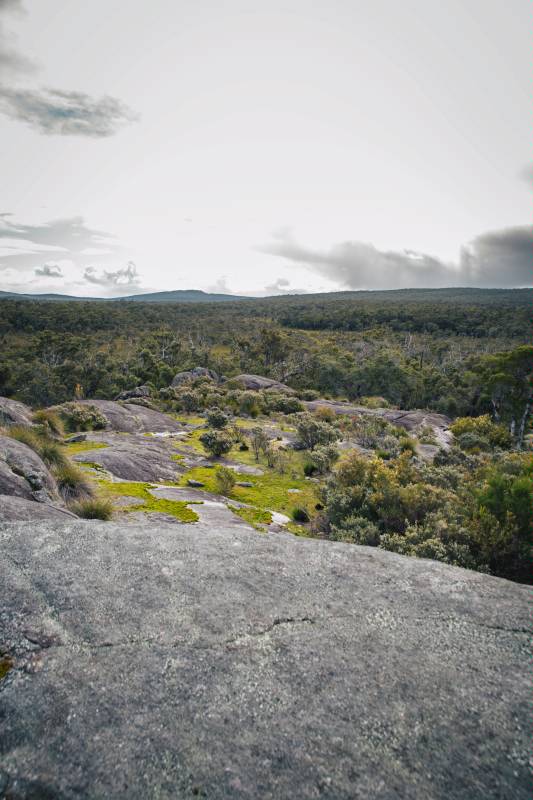Higher Degree by Research Application Portal
| Title | Reconstruction of past Indigenous fire and land use patterns in the Walpole Wilderness |
|---|---|
| Supervisor | Prof Stephen Hopper |
| Keywords | Fire |
| Ecology | |
| Archeaology | |
| Cultural land use | |
| Research area | History, Heritage and Archaeology |
| Biological Sciences | |
| Environmental Sciences | |
| Project description | The Walpole Wilderness Area (WWA) has been home to the Bibbulman and Menang First Nations peoples since time immemorial. This project will develop a First Nations cultural land use model for the Walpole Wilderness using a multi-disciplinary approach to combine contemporary orally transmitted knowledge with archaeological, ecological and historical evidence. Its aim will be to develop specific and nuanced understanding of First Nations relationships with and use of various components of the WWA, including peat swamps, granite outcrops, coastal heathlands and forested areas, with the intention of informing culturally and ecologically sensitive approaches to contemporary fire and other land management practices. |
| Opportunity status | Open |
| Open date | 01 Sep 2023 |
| Close date | 31 Oct 2024 |
| Funding source | Ian Potter Foundation |
| School | School of Biological Sciences |
| Contact | This interdisciplinary project is hosted by School of Biological Sciences principal supervisor Professor Stephen Hopper AC (UWA) and co-supervised by Dr Alison Lullfitz (UWA) and Dr Joe Dortch. Interested applicants are encouraged to contact the first principal supervisor Professor Stephen Hopper at steve.hopper@uwa.edu.au for more information. Please include a cover letter describing your interest in the field, CV, publications, an academic transcript, relevant supporting documents of prior research, and the names and contact details of two potential referees. |
| Specific project requirement | Prospective candidates should have Masters or Honours degree (first class or equivalent) that includes fire ecology. Good interpersonal communication and the ability to work as part of a multidisciplinary team will be expected from the candidate. The ability for independent, organized work and advanced communication skills in English (oral and written) are also essential. |
Guidance
